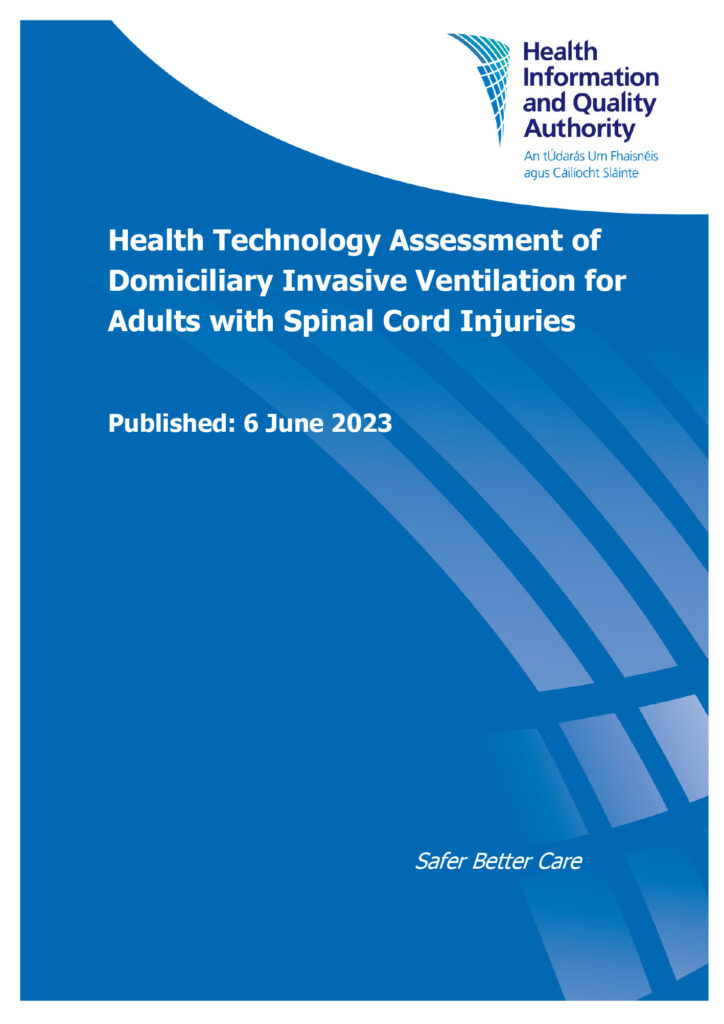Home » HIQA provides advice on adults with spinal cord injuries who require permanent ventilation at home
The Health Information and Quality Authority (HIQA) has published a health technology assessment (HTA) on domiciliary invasive ventilation for adults with severe spinal cord injuries.

The report was requested by the HSE in conjunction with the National Rehabilitation Hospital (NRH). It was conducted to inform the national delivery of care for adults with spinal cord injuries who require permanent invasive mechanical ventilation and in whom discharge home is deemed clinically appropriate.
Individuals with high spinal cord injuries have complex healthcare needs due to complications such as the complete paralysis of all four limbs and torso (tetraplegia) and respiratory failure. In order to breathe, a small number of these individuals will have a lifelong dependency on invasive mechanical ventilation via tracheostomy. Currently, an estimated five to ten adults with spinal cord injuries in Ireland receive invasive mechanical ventilation at home. While domiciliary ventilation is currently standard practice in Ireland for these patients, there are many challenges involved in their safe discharge home. As a result, they often remain in hospital for a prolonged period of time. This significantly impacts the quality of life of patients and their families and can place a strain on health service provision.
HIQA reviewed guidelines for domiciliary ventilation from other countries. The review highlighted key areas of importance for delivering a domiciliary ventilation service such as ensuring severe spinal cord injury patients had: 24/7 care provided by trained staff, specialised equipment and consumables, an adapted house and vehicle, and access to information and supports.
HIQA estimated the total five-year budget impact for the provision of domiciliary ventilation care to be approximately €3.4 million per patient. While it is unclear whether care at home would cost more or less than hospital care for these patients, it was noted that domiciliary ventilation may alleviate some of the substantial challenges currently experienced by patients and families, and would free up intensive care unit beds. To access the full HTA report go to hiqa.ie.

Highlighted Articles